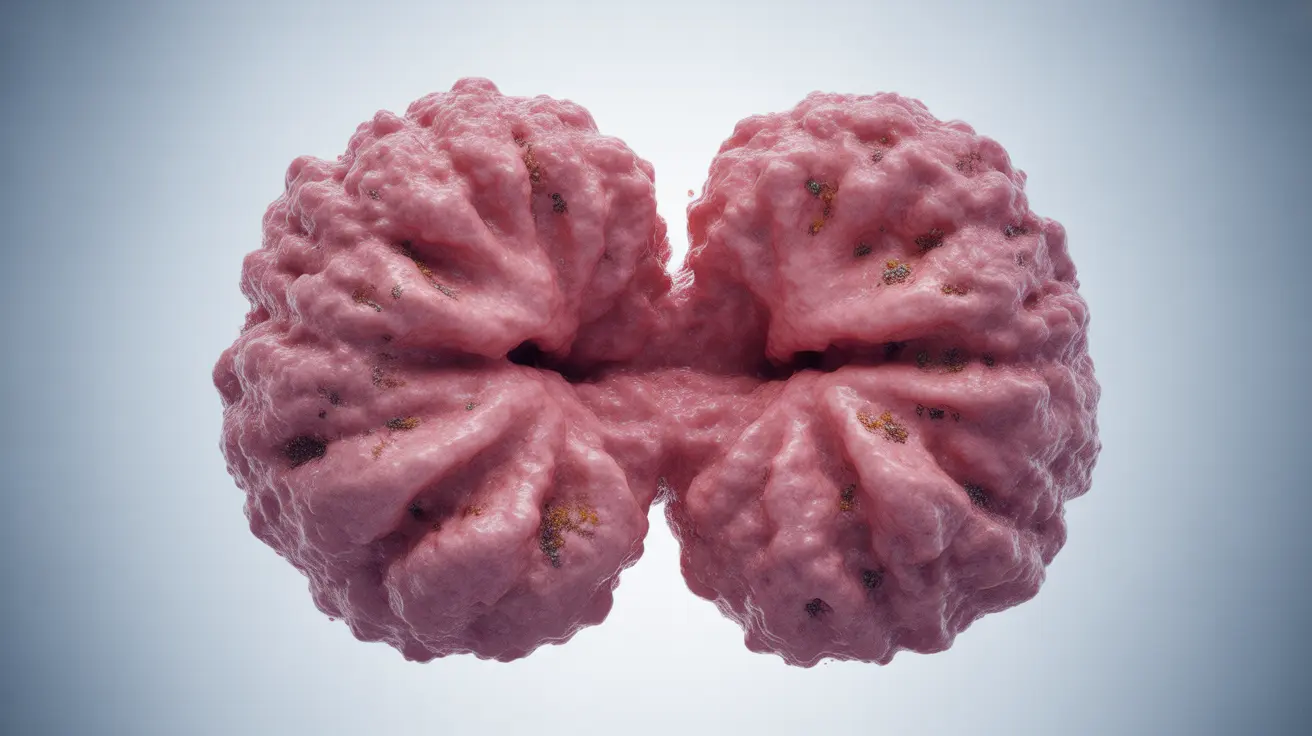If you've noticed persistent bad breath along with discomfort in your throat, your tonsils might be the culprit. The relationship between tonsils and bad breath is more common than many people realize, affecting both adults and children who experience tonsil-related issues.
In this comprehensive guide, we'll explore how tonsil problems can lead to bad breath, identify the key symptoms to watch for, and discuss effective treatment options and prevention strategies.
The Connection Between Tonsils and Bad Breath
Tonsils can indeed cause bad breath through several mechanisms. These small masses of lymphoid tissue in your throat can trap food particles, bacteria, and other debris in their surface crevices. When this debris accumulates, it can lead to infection, inflammation, or the formation of tonsil stones (tonsilloliths), all of which can result in unpleasant breath odors.
Understanding Tonsil Stones
Tonsil stones are small, whitish formations that develop within the crypts (pockets) of your tonsils. These stones are composed of calcified debris, bacteria, and other materials that become trapped and compressed over time. Their presence often contributes significantly to bad breath due to the high concentration of sulfur-producing bacteria they contain.
Recognizing Tonsillitis Symptoms
Tonsillitis, an inflammation of the tonsils, often accompanies tonsil-related bad breath. Key symptoms include:
- Sore throat and difficulty swallowing
- Swollen, red tonsils
- White or yellow patches on the tonsils
- Tender lymph nodes in the neck
- Fever and fatigue
- Bad breath or unusual taste in the mouth
Treatment Options for Tonsil-Related Bad Breath
Addressing bad breath caused by tonsil issues requires a targeted approach based on the underlying cause. Medical treatments may include:
- Antibiotics for bacterial tonsillitis
- Manual removal of tonsil stones by a healthcare provider
- Tonsillectomy in severe or recurring cases
- Professional cleaning and irrigation of tonsil crypts
Effective Home Care Strategies
Several home remedies can help manage tonsil-related bad breath:
- Gargling with warm salt water
- Using a water flosser on low pressure to clean tonsil crypts
- Maintaining proper oral hygiene
- Staying well-hydrated
- Using alcohol-free mouthwash
Prevention Strategies
Preventing tonsil-related bad breath involves several key practices:
- Regular and thorough oral hygiene
- Avoiding smoking and excessive alcohol consumption
- Staying hydrated throughout the day
- Eating a balanced diet
- Regular dental check-ups
Frequently Asked Questions
Can tonsils cause bad breath, and what are the main reasons behind it?
Yes, tonsils can cause bad breath primarily due to trapped food particles, bacteria accumulation, tonsil stones, or infection (tonsillitis). The crevices in tonsils can harbor debris that leads to bacterial growth and subsequent bad breath.What are the symptoms of tonsillitis, and how does it feel when you have it?
Tonsillitis typically causes severe sore throat, difficulty swallowing, swollen and red tonsils, fever, and bad breath. Patients often describe a constant burning sensation in their throat and may experience pain that radiates to their ears.How do you treat and manage tonsillitis and tonsil stones that cause bad breath?
Treatment options include antibiotics for bacterial infections, manual removal of tonsil stones, gargling with salt water, and maintaining good oral hygiene. In chronic cases, a tonsillectomy might be recommended.What are some home remedies for reducing bad breath caused by tonsillitis or tonsil stones?
Effective home remedies include salt water gargles, gentle tonsil irrigation with a water flosser, maintaining proper oral hygiene, drinking plenty of water, and using alcohol-free mouthwash regularly.How can I prevent tonsillitis and the formation of tonsil stones to avoid bad breath?
Prevention involves maintaining excellent oral hygiene, staying well-hydrated, avoiding tobacco products, practicing good dietary habits, and having regular dental check-ups. Additionally, addressing any signs of tonsil problems early can help prevent chronic issues.




